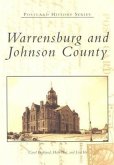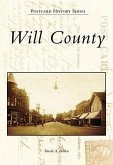Settled by pioneers from the South, Randolph County was organized in 1818 and named for a county in North Carolina. Winchester has always been the county seat, and the county's other incorporated towns owe their continued existence to the coming of the railroads between 1852 and 1882. In its earliest years, Randolph County became known for its abolitionism and work for temperance. In the years after the Civil War, the county's power grew economically and politically. The early 20th century witnessed a burgeoning manufacturing sector, and transportation was made easier through widespread use of steam railroads, electric interurban cars, and the automobile.
Hinweis: Dieser Artikel kann nur an eine deutsche Lieferadresse ausgeliefert werden.
Hinweis: Dieser Artikel kann nur an eine deutsche Lieferadresse ausgeliefert werden.








